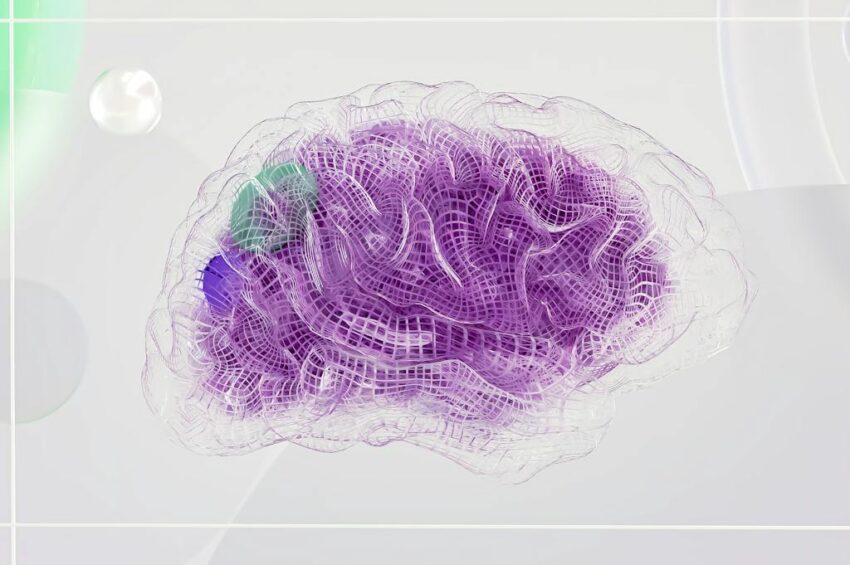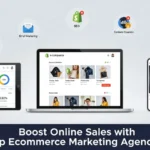
How AI Can Revolutionize Your Digital Marketing: A Step-by-Step Guide
- Introduction: Embracing the AI Revolution in Digital Marketing
- Step-by-Step Instructions: Integrating AI into Your Digital Marketing Strategy
- Tips or Warnings: Navigating the Challenges of AI Integration
- Conclusion: The Future of Digital Marketing is Intelligent
- Summary
- FAQ
- Additional Resources / References
Introduction: Embracing the AI Revolution in Digital Marketing
Artificial Intelligence (AI) is rapidly transforming the landscape of digital marketing. Gone are the days of relying solely on traditional methods. Today, forward-thinking marketers are embracing AI marketing strategies to automate tasks, personalize customer experiences, and optimize campaigns for unparalleled results. This guide will provide a step-by-step approach to help you harness the power of AI and stay ahead of the curve.
Step-by-Step Instructions: Integrating AI into Your Digital Marketing Strategy
Step 1: Assessing Your Current Digital Marketing Landscape
Before diving into AI, it’s crucial to understand your current digital marketing efforts. Analyze your existing campaigns, identify areas for improvement, and define specific, measurable, achievable, relevant, and time-bound (SMART) goals for AI implementation. What are your current strategies? What’s working, and what isn’t? Understanding your baseline is the first step in effectively implementing AI marketing strategies. This initial assessment will help you determine where AI can provide the most significant impact.

Step 2: Identifying AI Tools and Platforms for Your Needs
Numerous AI tools and platforms are available, each designed to address specific digital marketing needs. Consider the following:
- AI-powered SEO tools: These tools can help with keyword research, content optimization, and competitor analysis.
- AI-driven content creation platforms: Automate content creation and ideation.
- AI-based advertising platforms: Enhance ad targeting and optimize ad spend.
- Customer relationship management (CRM) systems: Improve customer engagement through personalized interactions.
Understanding your specific requirements is crucial in choosing the right tools. Explore options, compare features, and consider free trials to find the best fit for your business.

Step 3: Implementing AI for Content Creation and Optimization
AI can significantly enhance your content strategy. Utilize AI to:
- Generate content ideas: Brainstorm topics and outlines.
- Automate content creation: Draft articles, blog posts, and social media updates.
- Optimize content for search engines: Improve SEO through keyword integration and readability analysis.
For example, AI can help you scale up content production by automating various processes, accelerating content creation. This is further explored in the guide, “How to Leverage AI in Digital Marketing: The Complete Guide“.

Step 4: Leveraging AI for Targeted Advertising and Campaign Management
AI can revolutionize your advertising campaigns by:
- Predicting customer behavior: Anticipate customer needs and preferences.
- Personalizing ads: Deliver tailored messages to specific audiences.
- Optimizing ad spend: Improve the return on investment (ROI) of your advertising budget.
For example, the guide, “How to Supercharge Your Google Ads with AI: A Step-by-Step Guide” provides comprehensive insights into leveraging AI in Google Ads.

Step 5: Utilizing AI for Enhanced Customer Relationship Management (CRM)
AI can significantly improve customer engagement through:
- Chatbots: Provide instant customer support and answer frequently asked questions.
- Personalized email marketing: Deliver targeted email campaigns based on customer behavior.
- Predictive customer service: Anticipate customer needs and proactively offer solutions.
Step 6: Analyzing Data and Measuring Results with AI
Data analysis is critical for measuring the effectiveness of your AI-driven strategies. Use:
- Key Performance Indicators (KPIs): Track relevant metrics, such as conversion rates, website traffic, and customer engagement.
- Reporting tools: Generate reports and visualize data.
- Continuous optimization: Refine your strategies based on data insights.

Tips or Warnings: Navigating the Challenges of AI Integration
Data Privacy and Ethical Considerations
Data privacy is paramount. Ensure compliance with data protection regulations like GDPR and CCPA. Be transparent with your customers about how you’re using their data and prioritize ethical AI practices. This is a key aspect of “How to Implement AI in Your Digital Marketing Strategy“.

The Importance of Human Oversight
While AI can automate many tasks, human oversight is still essential. Human creativity, strategic direction, and critical thinking are necessary to ensure that your AI-driven campaigns align with your overall business goals. As mentioned in the guide, “How AI is Revolutionizing Marketing: A Practical Guide“, the human element is crucial for successful integration of marketing automation AI.

Conclusion: The Future of Digital Marketing is Intelligent
AI is not just a trend; it’s the future of digital marketing. By embracing AI and following these step-by-step instructions, you can transform your marketing efforts, improve efficiency, and achieve better results. Remember to prioritize data privacy, ethical considerations, and the invaluable role of human oversight. The ability to implement AI marketing is critical to staying competitive in today’s market.
Summary
- AI is revolutionizing digital marketing by automating tasks, personalizing experiences, and optimizing campaigns.
- Key steps include assessing current strategies, selecting appropriate AI tools, and integrating AI into content creation, advertising, and CRM.
- Success requires careful consideration of data privacy, ethical implications, and the balance between AI and human oversight.
FAQ
How can AI help with content creation?
AI can assist with generating content ideas, automating content creation, and optimizing content for search engines.
What are the benefits of using AI in advertising?
AI can improve advertising campaigns by predicting customer behavior, personalizing ads, and optimizing ad spend.
How does AI enhance customer relationship management?
AI can improve customer engagement through chatbots, personalized email marketing, and predictive customer service.
What are the potential risks of using AI in digital marketing?
Potential risks include data privacy concerns and the need for human oversight to ensure ethical practices and strategic direction.
Additional Resources / References
- How to Transform Your Digital Marketing Strategy with AI – Digitalshift
- [PDF] Automation with AI: Revolutionizing Digital Marketing | Lounge Lizard
- How to Leverage AI in Digital Marketing: The Complete Guide
- Harnessing AI in Digital Marketing: The complete guide for marketers
- AI in Digital Marketing – The Ultimate Guide
- Unlock Facebook Ads Success: A Beginner’s Guide to High-Converting Campaigns
- How to Supercharge Your Google Ads with AI: A Step-by-Step Guide
- How AI is Revolutionizing Marketing: A Practical Guide
- How to Implement AI in Your Digital Marketing Strategy
- Facebook Ads Mastery: A Step-by-Step Guide to High-Converting Campaigns



